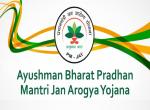One expected that with the British agreeing to the partition of India and creating at the behest of the Muslim League the country called Pakistan, India and Pakistan would be able to follow their different paths of government and development. Both countries inherited the British administrative system with representative democracy as the form of government. After Jinnah’s death Pakistan moved rapidly towards Islamic fundamentalism, so much so that in 1956 Pakistan was declared an Islamic Republic. Unfortunately the democratic traditions left behind by the British were soon abandoned and the army took over power in Pakistan. From time to time Pakistan has tried to revert to a form of parliamentary democracy, but the fact is that the real ruler of Pakistan is the army. This is important to remember because almost all the problems between India and Pakistan have resulted from the army domination of government in Pakistan.
India, on the other hand, decided to follow a completely different path. We built secularism into our Constitution, we provided for constitutional guarantees for minorities, we steadfastly embraced the path of a Westminster style democracy, we held elections regularly and in India the armed forces are completely under civilian control. Once again this is a very important point because this is in sharp contrast with Pakistan.
Let us move the question of control of the armed forces out of the way once and for all. In Pakistan the army is larger than life because it projects itself as the only shield and buckler against the enemy of Pakistan. The word is used in its singular form rather than the plural deliberately because Pakistan has always projected India as the sole enemy of that country. If India is its enemy and it is aggressive, it is but natural that the defender of Pakistan, the army, must be given a very special place in that country. This reminds one, of the situation in Germany prior to the end of World War II. Prussia, the State which ultimately absorbed all the other kingdoms and principalities, was a highly militarised state and the Junker class, which approximated to the Japanese Samurai, virtually called the shots. The Prussian military was supreme in that country and when Germany was united the German Army inherited this mantle. Therefore, after Germany lost World War I, the Junker class blamed not itself for the defeat but insisted that the German Army was betrayed by money-bags. With the Weimar Republic having failed miserably on all fronts, especially the economic, Hitler was able to focus attention on the Jews, whom he blamed for betraying Germany. It is the failure of the Weimar Republic and the doddering of Field Marshal Hindenburg which brought Hitler to power.
Nazi Germany was a politico military State and it is only the complete destruction of the German armed forces by the Allies in the Second World War which put to rest the larger than life image of the army. This is the day when democracy dawned on Germany. The parallel with Pakistan is almost exact. Pakistan had lost the Kashmir War, the 1965 War, the 1971 War and the Kargil misadventure. The Pakistan armed forces have never given credit to the Indian armed forces or blamed themselves for their basic weakness. Instead it is politicians who betrayed the army, which must, therefore, have supremacy. To take revenge against India the army must be armed to the teeth and it must be allowed to use every weapon of low intensity conflict, including terrorism, militancy, insurgency and the like to keep India in a perpetual state of internal conflict. The idea is to bleed India white. The main progenitor of this idea is the Inter Services Intelligence (ISI) and the instruments of terror would be the various militant groups such as LeT, HUJI, HUM, etc. The Pakistan Army has operated in the belief that India will not retaliate by attacking terrorist centres in Pakistan and, therefore, Pakistan need not fear proactive or preemptive strikes by India. Simultaneously Pakistan has created an envelop of terror in which under threat of nuclear war India is to be blackmailed into taking no action in Pakistani territory. In sharp contrast is the Indian Army which follows a doctrine of extreme restraint as dictated by government. This is taken by Pakistan as a sign of India’s inherent weakness.
According to Pakistan the main bone of contention between Pakistan and India is Kashmir. Before going on to the merits of the case let us examine the legal position. On 14th August 1947 the British lapsed paramountcy, which doctrine had established British sovereignty and hegemony over the Princely States. Theoretically one-third of the territory of India became independent overnight. Sardar Patel, the Deputy Prime Minister and Minister for Home and States, was not prepared to tolerate this and he forced the States first to accept a stand still agreement which froze the relationships of the Government of India and the Princely States at the stage where it has stood when paramountcy was lapsed. Thereafter the rulers of the Indian States were made to sign instruments of accession to the Indian Union, which reestablished Indian paramountcy and brought the States under the protection of India. The only States which did not sign the instrument of accession were Kalat in Baluchistan Province of Pakistan, Hyderabad, Junagadh, Travancore and Jammu & Kashmir. Junagadh opted to accede to Pakistan, but this was very short-lived. On November 1947 Sir Shahnawaz Bhutto, Dewan (Chief Minister) of Junagadh wrote a letter to N.M. Buch ICS, Regional Commissioner, Western India States (successor to the Resident and Agent to the Governor General), in which he stated, “The view of the leaders was unanimously expressed that instead of handing over the administration to the Indian Union through the so-called provisional government, it should be directly given over to the Indian Union through the Regional Commissioner at Rajkot … The Junagadh Government, therefore, has requested that in order to avoid bloodshed, hardship, loss of life and property and to preserve the dynasty, you should be approached to give your assistance to the administration … This arrangement is sought pending an honourable settlement of the several issues involved in Junagadh’s accession”. On this specific request the Government of India through the Regional Commissioner of the Western India States took over the administration of Junagadh. Because that State has no common border with Pakistan there was no other option but for the Nawab to join the Indian Union.
In the case of Kalat the Pakistan Government forcibly extinguished the dynasty. Travancore finally acceded to the Indian Union because there was widespread protest against the decision of the Maharaja, who then decided to join the Indian Union. In the case of Hyderabad that State unleashed a reign of terror against the Hindu population through the Razakars, or fundamentalist militant groups. When Indian territory began to be attacked by Hyderabad, whose government took no action to curb these attacks despite several warnings, India launched a police action and the army entered Hyderabad and quickly subdued the Hyderabad State Forces. The Nizam then acceded to the Indian Union and was asked to continue as Rajpramukh, or Head of State. Jammu & Kashmir is sui generis because Pakistan chose to invade that State in what was one of the most rapacious campaigns in Indian history. It is only after the Maharaja of Jammu & Kashmir officially signed the instrument of accession, fully backed by the leader of the National Conference, Sheikh Abdullah, that India sent in the army to defend its own territory. Unfortunately the then Prime Minister, Jawaharlal Nehru, put an end to armed action at the stage when the Indian army had become unstoppable, thus giving Pakistan a breather and resulting in a de facto partition of the State. The rest is history, with Pakistan insisting that Kashmir be handed over to it, quite forgetting its own role as the aggressor and the legal authority of the Ruler to accede to the country of his choice. Pakistan is the trespasser, whereas India is the lawful owner.
In this context an incident relating to Morarji Desai, the then Prime Minister and Zia Ul Haq, the then President of Pakistan must be narrated. Zia made an offer to Morarji Desai that if India surrendered Kashmir to Pakistan he would guarantee eternal peace between Pakistan and India. Morarji told Zia that he could have Kashmir that very day, provided that he was prepared to accept fourteen crore Muslims with it. When Zia expressed surprise at this statement Morarji told him that unlike Pakistan India chose the secular path. Therefore, it has one Sikh majority State, the Punjab, two largely Buddhist States, Sikkim and Arunachal Pradesh, three Christian majority States, Nagaland, Mizoram and Meghalaya and one Muslim majority State, Jammu & Kashmir. If that State broke away from India on account of its Muslim majority it would be a signal that Muslims do not want to live in India, though India is now the second largest Islamic country in the world in terms of population, just behind Indonesia. Where, then, would there be justification for a secular State or the continued presence of Muslims in India? Zia got the point immediately and promised that so long as Morarji was Prime Minister the word Kashmir would not be uttered by him. We must make it clear to the world and especially to Pakistan that in Kashmir lies the very spirit of our secularism and that under no circumstance whatsoever, now or in the future, will Kashmir be allowed to break away from India. This has to be one of the principal pillars of State Policy, in terms of our secular status, Jammu & Kashmir and Pakistan.
God knows that India has its problems but it also has so many safety valves because of its basic democracy that all these little eruptions escape into the atmosphere and then die. Pakistan is a pressure cooker with no safety valves and, therefore, the very terror it unleashed on India is now threatening Pakistan itself. This is an issue which either Pakistan does not want to address or is incapable of addressing. Under these circumstances what should be our policy towards Pakistan? The ideal situation would be that India and Pakistan have an open border as do Canada and the United States of America. Pakistanis and Indians should be allowed visa free travel to each other’s countries and there should be opening up of trade so that India’s economic strength benefits Pakistan also. But such an ideal cannot be established when one party espouses terror as a part of State Policy, constantly harps on Kashmir and goes out of its way to ensure that India remains embroiled in internal conflict. Just look at Pakistan’s attitude towards our development assistance to Afghanistan. India and Afghanistan, especially the Pashtuns, have a long history of friendship in which religion is not the deciding factor. Pakistan has queered the pitch by using militants from its North West to indulge in anti Indian activities in Kashmir, but that does not alter the basic goodwill for India in Afghanistan. Pakistan wants to use the Taliban to destroy this harmony so that India has no presence in Afghanistan. Can we really be friends with such a country?
If the ideal cannot be achieved then what is the second best alternative? One is aware of the nuclear environment in which we live and the potential irresponsibility of the Pakistan military in its willingness to use nuclear weapons as a first strike. We live in terror of this situation, but India also has nuclear weapons and a far stronger scientific, research and development infrastructure than Pakistan. Why is Pakistan not afraid of our nuclear capability? This is because of our lack of aggressiveness in foreign policy. In any case so long as the Pakistan Army exists there can be no democracy in Pakistan. Without democracy there cannot be peace because the Pakistan Army has a vested interest in hostility so that its own hegemony can be maintained. India is pursuing a mirage if it feels that under these circumstances people to people contacts will save the situation. The fact is that until we destroy the Pakistan armed forces in battle so that they lose their primacy in the minds of the Pakistani people, India will never have peace. Therefore, an overwhelming build up of our armed forces which could deliver a death blow to the Pakistan Army even in a nuclear environment must be the pivot on which our Pakistan policy must hinge.
India does not meddle with the affairs of Pakistan. But we should. After all there are strong separatist movements in Sindh, Baluchistan and Khyber-Pakhtunkhwa Provinces. We should encourage these movements so that Pakistan Balkanises. The Indian sympathisers of Pakistan say that it is in India’s interest that there should be a strong and united Pakistan. The opposite submission, however, is that India’s interest lies in the vivisection of that country. This is a matter on which we must do serious thinking.
----------------------------------------------
Published Date: 4th November, 2011









Post new comment